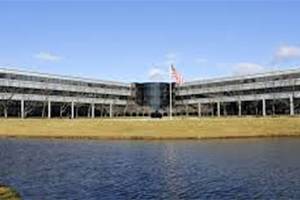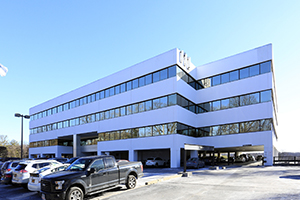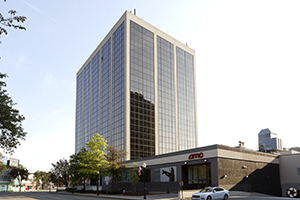Although we can anticipate the filing of lawsuits by surviving plaintiffs or their estates who have been impacted by COVID-19, the question of whether or not a cognizable cause of action exists against a defendant will depend upon a number of variables, the most significant of which is the strength of the proof of where and how the disease was contracted.
As a general proposition, in all personal injury actions a plaintiff or his/her estate must prove four elements in order to recover: (1) the existence of a legal duty; (2) breach of that duty; (3) causation; and (4) damages. The most important and determinative element that must be met is duty, and the duty upon the defendant is determined by who they are and their relationship to the plaintiff.
For example, a nursing home certainly has a duty to protect its residents from infectious diseases such as the corona virus. If the nursing home was aware that there was a resident, an employee or a visitor that was infected and did nothing to protect the other residents by isolating the resident, directing the employee to stay at home, or preventing the visitor from accessing the facility, then the nursing home may have breached a duty to any residents that get sick after the initial infection became known. One could make a strong argument that the nursing home should have also implemented strict visitation restrictions to ensure that admitted visitors are not sick, requiring them to wear personal protective equipment, and requiring visitors to maintain social distancing within the home, etc. Furthermore, the nursing home would be held to a higher standard of care and duty than, say, a supermarket, due to the fact that the nursing home is a long term care health facility with elderly and sometimes infirm patients and employs skilled and trained staff that are licensed as health care workers.
A supermarket, on the other hand, would not be held to the same standard or duty because it is open to the public, does not employ medically trained workers, and is not in the business of caring for elderly patients. The court system will be asked to determine the standard or extent of the duty, if any, of an average citizen where, for example, a neighbor infects another neighbor for failing to keep social distancing protocols. Does the average, non-medical person have a responsibility to keep other people from being infected, especially if he or she does not know that he is a carrier of the disease? Of course, however, there are numerous issues that will arise and questions that will need to be answered as the analysis continues. Some questions that a plaintiff will need to address are: (1) did the plaintiff fail to adhere to any prophylactic restrictions that contributed to him or her contracting the virus; (2) was the defendant even aware that they were infected, and thus, on notice that they needed to take extra precautions; and (3) at what point in time during the pandemic was the defendant made aware of his condition, as the medical community’s understanding of how the virus is transmitted has certainly evolved since the onset of the pandemic.
It is with the third prong of the analysis, causation, where one would expect that the vast majority of plaintiffs will struggle in proving their claims. This is because each plaintiff will bear the burden of proving that any specific defendant is the primary reason, or a sole reason that he or she became infected. Since the manner in which the virus is transmitted is still not completely determined, proof of when and how a particular individual transmitted the disease will be problematic. Moreover, due to the fact that people can be asymptomatic and nevertheless transmit the disease, defendants will have a formidable defense when demanding the plaintiff’s proofs. Any plaintiff that has had any contact with any other person other than the defendant will have further difficulties with proving causation. Finally, every defendant will be able to argue that every plaintiff could have been potentially infected due to innocuous contact with the outside world through the mail, delivery packages, food packages, etc. Finally, a plaintiff will almost certainly need to hire an expert in infectious diseases in order prove her case, a cost that will deter many plaintiff’s lawyers in accepting clients whose fact patterns have too many issues.
Situations where the plaintiff is already isolated, has been confirmed not to have the disease, and the defendant can be held to a higher standard of duty (e.g., nursing home, other medical facility) will be the easiest cases for plaintiffs to prevail. Assuming that the plaintiff can show there was a duty which was breached and the defendant was the proximate cause of the infection, the final issue to be addressed will be the proper measurement of damages. Unfortunately, at least in litigation terms, a case where a plaintiff becomes ill but then recovers will likely not justify a financial recovery that would be commensurate with the costs of litigation. And while there may be in any particular situation ancillary costs associated with an infection, such as the plaintiff’s lost wages or business opportunities which he might be able to include, along with the obvious physical injury, to his damages, it may well be that due to the proof difficulties and expert witness expenses associated with proving causation, plaintiffs’ counsel will probably only accept cases where the plaintiff has passed away as a result of the infection.
Hospitals will be difficult to sue based upon the fact that, as a facility designed for the purposes of treating the virus, it is assumed that there is a higher probability to contract it there than most places.
Employees will be able to sue a hospital employer if they had to use makeshift personal protection equipment as opposed to the equipment used by professionals.
Generally, we would expect that the vast majority of lawsuits that will be brought will be asserted against nursing homes and victims’ employers. Lawsuits against employers will be based upon demonstration of their failure, in the particular employment situation, to take the proper precautions to protect their employees from getting infected. Lawsuits against nursing homes will be based upon their failure to protect their patients by instituting proper visitation and contact protocols and practicing proper hygiene and cleanliness.
The information provided in this article is not a substitute for legal advice and does not create an attorney-client relationship.
The attorneys at Price, Meese, Shulman & D’Arminio, PC, and its covid-19 legal response team are here to assist. The author, Michael Orozco, is an attorney at Price Meese and can be reached at 201-391-3737 or via email morozco@pricemeese.com.






